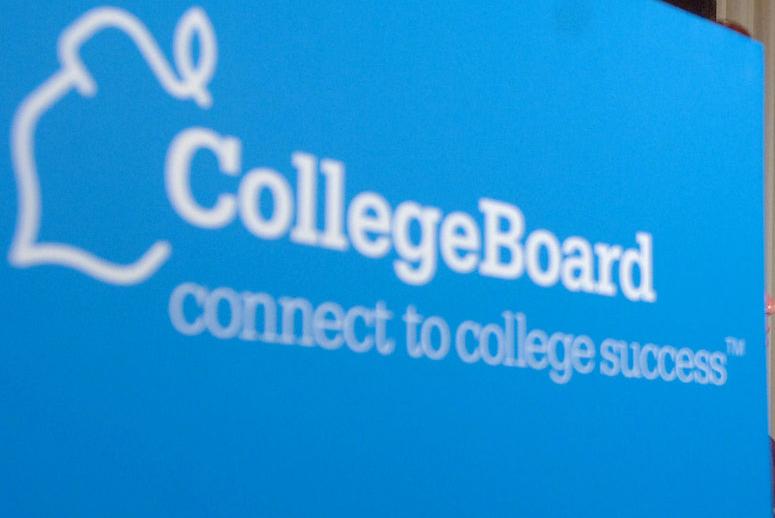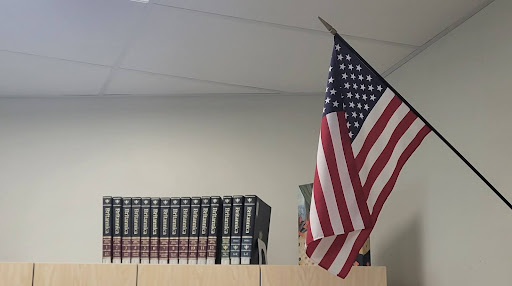College Board — Enemy or Friend?
The College Board is a great organization or a terrible one, depending on who you ask. Whatever your opinion, it is undeniable that the College Board is responsible for a lot of things. The College Board is responsible for the SAT, PSAT 8/9, PSAT 10, PSAT/NMSQT, AP classes and exams, and CLEP. The SAT is an alternative to the ACT; the PSAT 8/9 and PSAT 10 are SAT-style exams leveled down for 8th, 9th, and 10th graders respectively; the PSAT/NMSQT is the exam that, if one gets a good score on, allow several opportunities for scholarships; the AP classes and exams provide opportunities to gain college credit; and the CLEP is an alternative to AP exams. Skyline students overwhelmingly take AP exams, although they prefer the ACT over the SAT. Further, teachers and students alike appreciate the College Board, but have their grievances, like with every other organization. The College Board has its fair share of problems: high cost of exams, inefficiency in grading, poor evaluations for grading, and so on; but overall, it is not a bad organization, because it does its job well.
The SAT is one of two primary services that the College Board provides (along with AP classes and exams). While the SAT, along with the ACT, makes up the bulk of college entrance exams in the United States, few students at Skyline take the SAT. In fact, many counselors at Skyline don’t really deal with the SAT, and Skyline students primarily take the ACT. “I’m not really familiar with the SAT…”, said counselor Bronson Gray, saying that only 5% of his students take the SAT. Counselor Jillian Hinckley said that “We don’t hear many grievances about the SAT…” and stated that about 10% of juniors and seniors that she counsels take the SAT.
However, there are few or no alternatives to Advanced Placement exams. Thus, perhaps unsurprisingly, students overwhelmingly take AP exams. Teachers said that anywhere between 80 to 100 percent of students in their classes took AP exams in any given year. Teachers appreciated the College Board’s support and services, with asterisks. “I appreciate the opportunity to give students a college-level course in high school. If it wasn’t for the option of college credit, way fewer students would take a year long psychology course in high school,” said Sydney Lott, one of the two AP Psychology teachers at Skyline. However, he criticized the question style of AP exams: “The College Board’s job is to try and differentiate between kids who know enough, kids who know a lot, and kids who know everything (a 3, 4, and 5 on the AP test or … not passing the test) and, because of that, they have to ask trick questions sometimes…they ask questions on the AP test of words that no psychology teacher knows or one person read about one time.” Julie Thackeray, an AP English teacher, said: “I appreciate the wealth of resources that they have on AP Central, and now with AP Classroom. I know…it’s…clunky, but AP Classroom has only been up and running for three years so it takes time to build a website. Compared to my IB, it’s a lot easier to navigate and again there’s just a wealth of resources.” However, like Lott, Thackeray criticized the format of the AP exam: “Partly just the format of the test…I am not a fan of multiple choice tests because those kinds of tests really test your skill of test-taking rather than your knowledge of…subject material…I wish that the exam was designed just to be [an] essay exam.” Melinda Reay, who teaches two AP subjects, said that she appreciates the rigidity of her courses: “I appreciate the College Board has created a course that once you get it down, you have a pretty good idea of what you should be teaching, which allows it to be consistent throughout each year to prepare my students…They also have…AP Classroom, which allows you…to provide students practice tests…They also provide previous years’s practice tests, which become really helpful to…prep students.” However, she criticized a lack of communication between the College Board and teachers as well as the cost of AP exams: “The cost of AP exams is pretty exponential for a nonprofit, and students who get a fee waiver still have to pay about 40 dollars per exam and so it can be really inequitable when it comes to students in poverty…which is why we have a lack of diversity…in AP classes.”
Students also seem to like AP classes and the opportunities they seem to provide. “They try, they have pretty much everything set up ahead of time, so you know what you’re doing, and their website is pretty good to use and all that stuff,” said Sam Wilson, a student who took an AP class in the past. Another student, Evan Bryant, said that, “I feel like everyone should take an AP class because it’s helpful and prepares you for college.” Luke Coombs, a freshman in AP Human Geography, said that, “It’s a really good learning experience for kids like me (freshmen) so that they can have the learning experience of what it takes to take a college class.” Paige Johnson, also a freshman, said that “…they give you college credit and taking AP classes are good for your record if you could pass them…Personally, I chose it to get college credit.” Further, Zoe Caldwell, a student, said, “I really enjoy taking AP classes because I think they help immerse you in a subject…it also gives you good college experience…and it’ll likely prepare you for that sort of environment if you plan on going to college.” Students have few grievances, however, with the College Board.
The College Board enjoys high approval among students, teachers, and counselors alike. Although groups like the Americans for Educational Testing Reform (AETR) seem to disagree with the College Board, most at Skyline don’t. Counselor Jillian Hinckley’s statement that “We don’t hear many grievances about the SAT…” perhaps best puts into words how Skyline as a whole views the College Board – an organization that does its job well and provides opportunities for students to excel.



